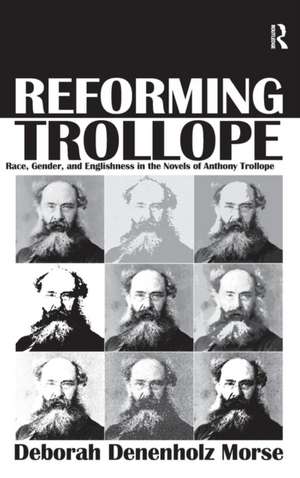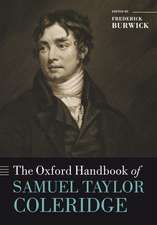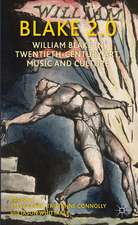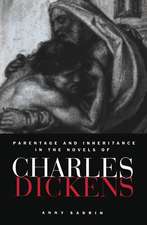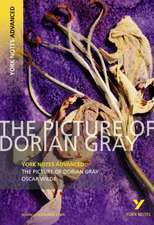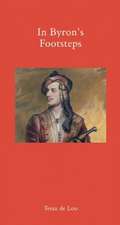Reforming Trollope: Race, Gender, and Englishness in the Novels of Anthony Trollope
Autor Deborah Denenholz Morseen Limba Engleză Hardback – 28 feb 2013
| Toate formatele și edițiile | Preț | Express |
|---|---|---|
| Paperback (1) | 258.70 lei 6-8 săpt. | |
| Taylor & Francis – 14 oct 2024 | 258.70 lei 6-8 săpt. | |
| Hardback (1) | 1112.34 lei 6-8 săpt. | |
| Taylor & Francis – 28 feb 2013 | 1112.34 lei 6-8 săpt. |
Preț: 1112.34 lei
Preț vechi: 1356.52 lei
-18% Nou
Puncte Express: 1669
Preț estimativ în valută:
212.85€ • 222.79$ • 177.16£
212.85€ • 222.79$ • 177.16£
Carte tipărită la comandă
Livrare economică 31 martie-14 aprilie
Preluare comenzi: 021 569.72.76
Specificații
ISBN-13: 9781409456148
ISBN-10: 1409456145
Pagini: 212
Ilustrații: Includes 16 b&w illustrations
Dimensiuni: 156 x 234 x 13 mm
Greutate: 0.48 kg
Ediția:New ed
Editura: Taylor & Francis
Colecția Routledge
Locul publicării:Oxford, United Kingdom
ISBN-10: 1409456145
Pagini: 212
Ilustrații: Includes 16 b&w illustrations
Dimensiuni: 156 x 234 x 13 mm
Greutate: 0.48 kg
Ediția:New ed
Editura: Taylor & Francis
Colecția Routledge
Locul publicării:Oxford, United Kingdom
Public țintă
AcademicNotă biografică
Deborah Denenholz Morse is the Vera W. Barkley Term Professor of English and Inaugural Fellow for the Center for the Liberal Arts at William and Mary, as well as a Plumeri Faculty Excellence Scholar.
Cuprins
Introduction; Part 1 Reforming Genre; Chapter 1 Broken English Pastoral: The Small House at Allington (1864); Chapter 2 Sailing to Australia, Reading Othello, Transforming the Marriage Plot in Lady Anna (1874); Part 2 Reforming Gender; Chapter 3 Fatal Englishness: History and Death in Sir Harry Hotspur of Humblethwaite (1870); Chapter 4 Legitimizing 'Vulgar' Female Desire in the English Realist Novel: Ayala's Angel (1881); Part 3 Reforming Race; Chapter 5 The Governor Eyre Affair: Race and Imperial Desire in He Knew He Was Right (1869); Chapter 6 Bigamy and the Creole Beauty: Race Anxiety in Dr. Wortle's School (1881); conclusion Conclusion;
Recenzii
'To say that this is the most important work we now have on Anthony Trollope understates its value. Deborah Morse, for some time our most influential Trollope scholar, here gives us a thunderous book, such a remarkable and bold set of readings that we must wonder at how timid we were. Morse's new Trollope, now our Trollope, is a reformer of gender, politics (in the largest sense), and--get this!--race. Morse writes this audacious book with such lucidity, grace, and good-heartedness that it works on us much as a Trollope novel does--working into our minds and beings, not just persuading us but making us new.' James R. Kincaid, University of Southern California, USA ’If Anthony Trollope is the Victorian novelist for our neoliberal age, then Deborah Morse’s Reforming Trollope is the ideal accompaniment for the scholarly reader. Erudite and witty, timely and topical, Morse’s study will reward new Trollope enthusiasts and specialists alike. The attention to works that highlight Trollope’s complex engagement of genre, gender, and race will spark new conversations on this ever more fascinating Victorian writer.’ Lauren M. E. Goodlad, University of Illinois, Urbana, US, author of The Victorian Geopolitical Aesthetic: Realism, Sovereignty, and Transnational Experience ’Morse expertly combines close literary analysis with careful research on historical eventualities and the ideological significances of the works’ context.’ Review of English Studies ’What this biography does achieve is to piece together, at times ingeniously, the fragmented and wayward life of a unique man of letters.’ Library and Information History '... Morse does nothing if not pay close attention to Trollope and the study of his work. Contending with her readings and with the impressive amount and variety of evidence that she brings to support her claims thus promises to yield more thoughtful analyses and learned readings of Trollope and his world. The pleasure of this kind of su
Descriere
Trollope the reformer and the reformation of Trollope scholarship in relation to gender, race, and genre are the intertwined subjects of eminent Trollopian Deborah Denenholz Morse’s radical rethinking of Anthony Trollope work, particularly the later novels. Morse traces the evolution of Trollope’s views on the pastoral genre, modernity, primogeniture, the marriage market, British imperialism, and England’s involvement in slavery and the black Atlantic slave trade, showing that Trollope was not the complacent Englishman portrayed by many scholars and historians of the Victorian period.
